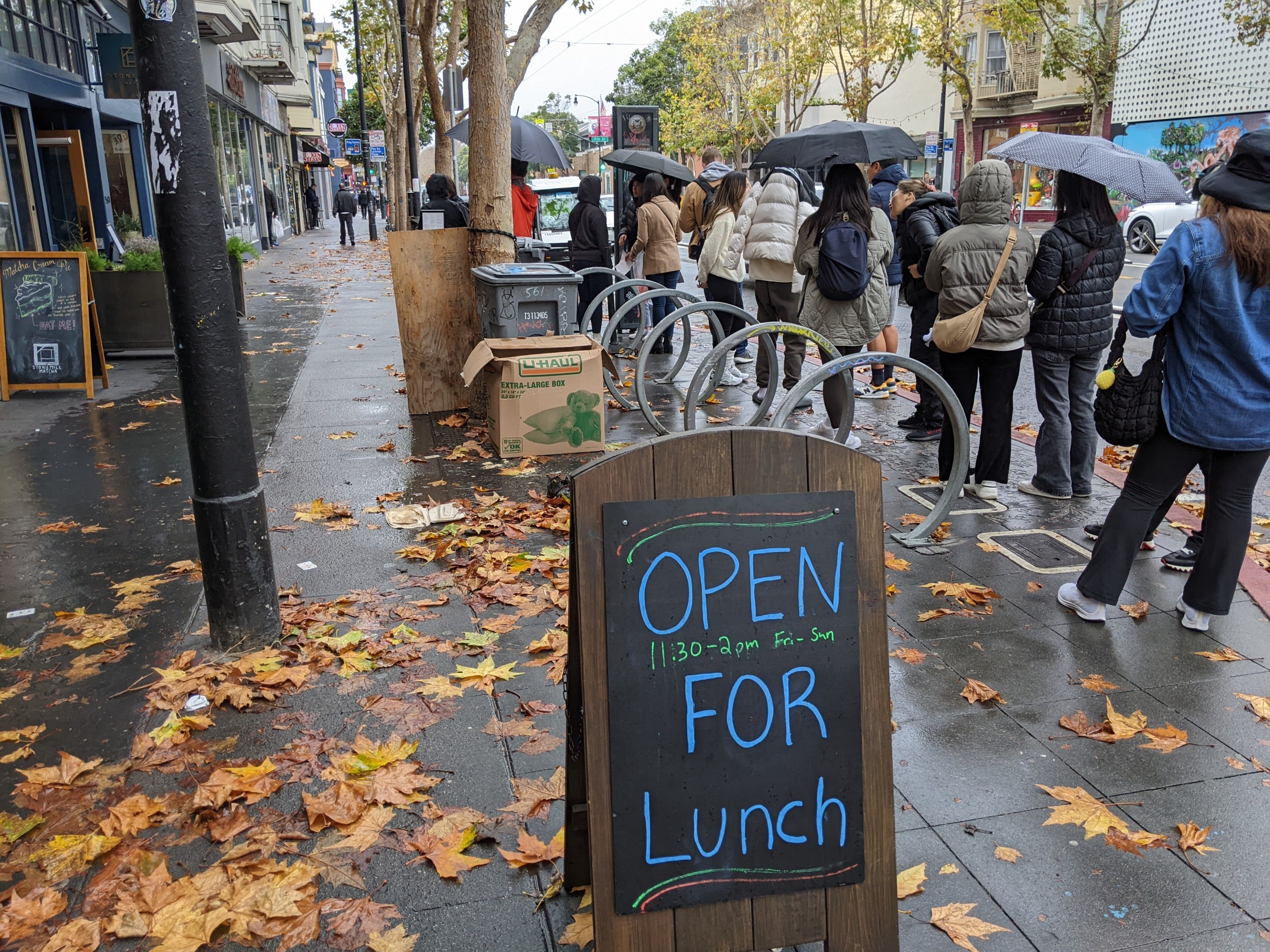Note: GJEL Accident Attorneys regularly sponsors coverage on Streetsblog San Francisco and Streetsblog California. Unless noted in the story, GJEL Accident Attorneys is not consulted for the content or editorial direction of the sponsored content.
Geary Boulevard has recently seen transit improvements, including bus lanes, as well as pedestrian safety enhancements. But now, according to a story from last week's SF Standard, businesses along the corridor, including "Belly Burgers and others, are suffering due to parking and traffic flow changes."
This was stated as fact in the article, "Muni boss on the hot seat as San Francisco mayor’s race heats up." I emailed Joshua Koehn, the story's author, to ask where the information about Belly Burgers came from, since it was not clear in the piece.
"That line should have been more clearly attributed to David Heller [president of the Greater Geary Boulevard Merchant and Property Owners Association]" was part of Koehn's reply. He stated that he hadn't actually seen receipts for the businesses.
To its credit, the Standard updated the story and added "he said" after the Belly Burger claim. But the paper still failed to qualify it with real-world data.
I've written this critique of mainstream journalism before—last time was in 2022 after a piece in the San Francisco Chronicle followed the mantra of "show both sides" about claims that bike lanes hurt business. As with the Standard story, it didn't provide any data to back up or challenge merchant claims.
The effect of bike and transit lanes on merchants is actually a well-studied phenomenon. In reality, transit and bike lanes do not hurt merchants, for the simple reason that they bring more customers, just not by car.
Other Streetsblog writers have covered this. So have our friends at Bloomberg, which did a great overview back in 2015 that includes data from cities around the world that installed bike lanes on merchant corridors. From "The Complete Business Case for Converting Street Parking Into Bike Lanes," which highlighted the fight with merchants on San Francisco's Polk Street:
But here's the thing about the "studies on possible economic impacts" requested by retailers on Polk Street, or really wherever bike-lane plans emerge—they've been done. And done. And done again. And they all reach a similar conclusion: replacing on-street parking with a bike lane has little to no impact on local business, and in some cases might even increase business. While cyclists tend to spend less per shopping trip than drivers, they also tend to make more trips, pumping more total money into the local economy over time.
Links and data from twelve different studies are included in the Bloomberg story.
And yet, stories continue to be written as if the question of whether bike lanes are good or bad for business is just a point of view.
It's not okay for mainstream journalists to simply "show both sides," or worse yet just repeat unqualified merchant statements without evidence, as in the Standard's story. When anecdotes are presented as facts, or "show both sides" is followed without any context or data, a false narrative results. That impacts real-world policy decisions. In the safe-streets realm, such misinformation delays the installation of essential bike and transit infrastructure. And that gets people hurt or even killed.





